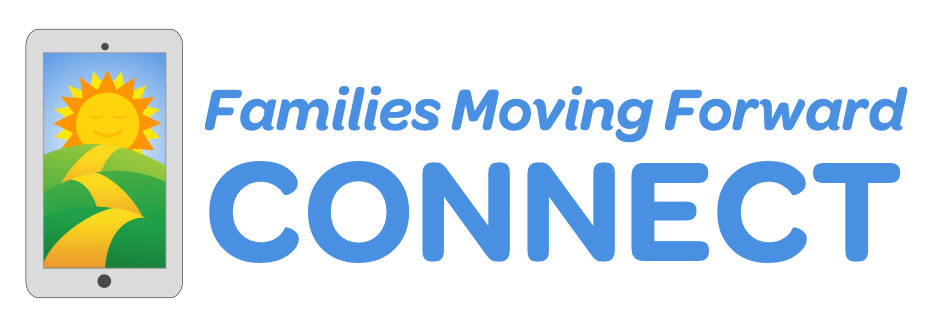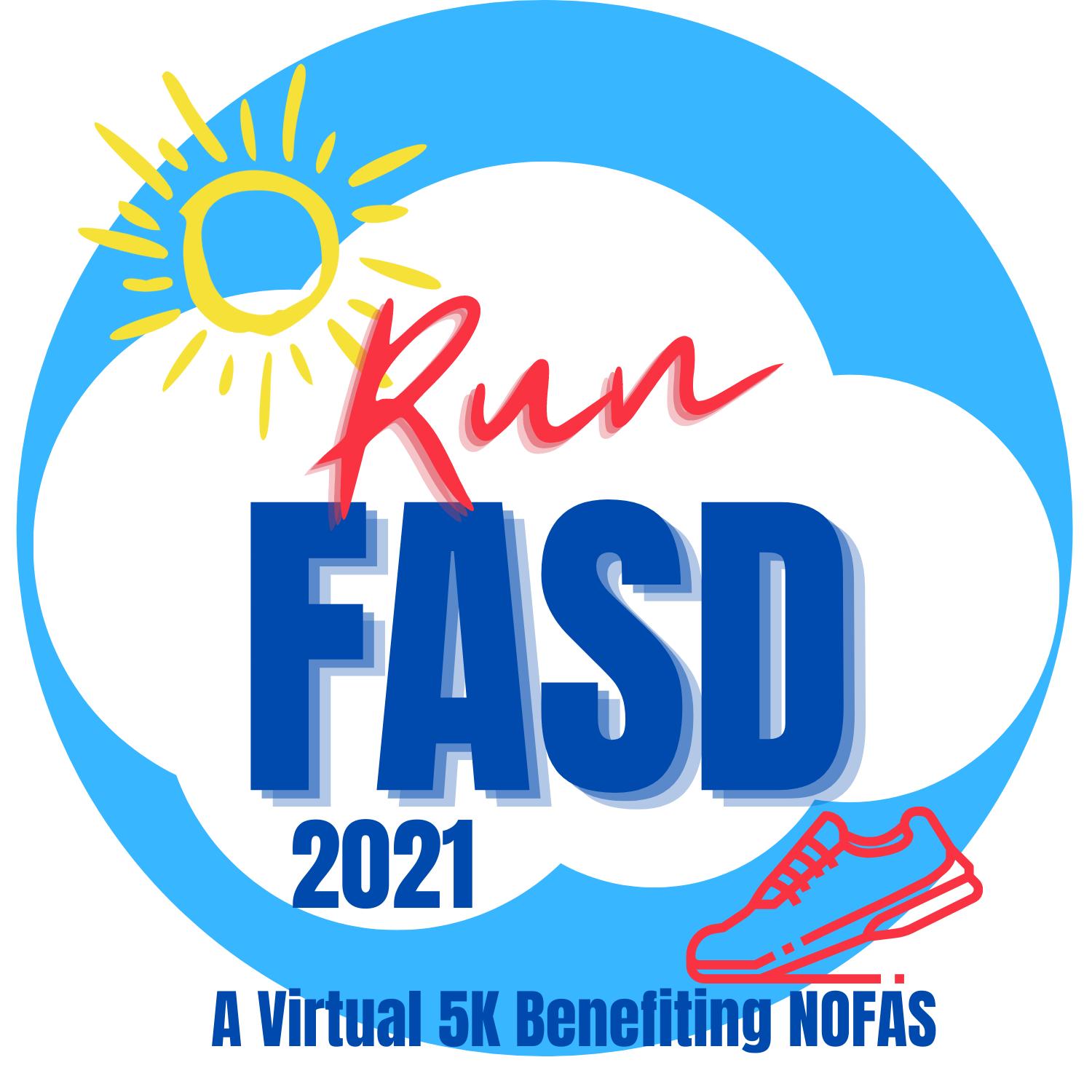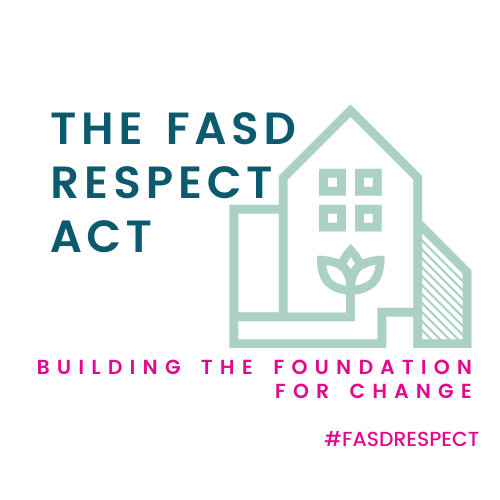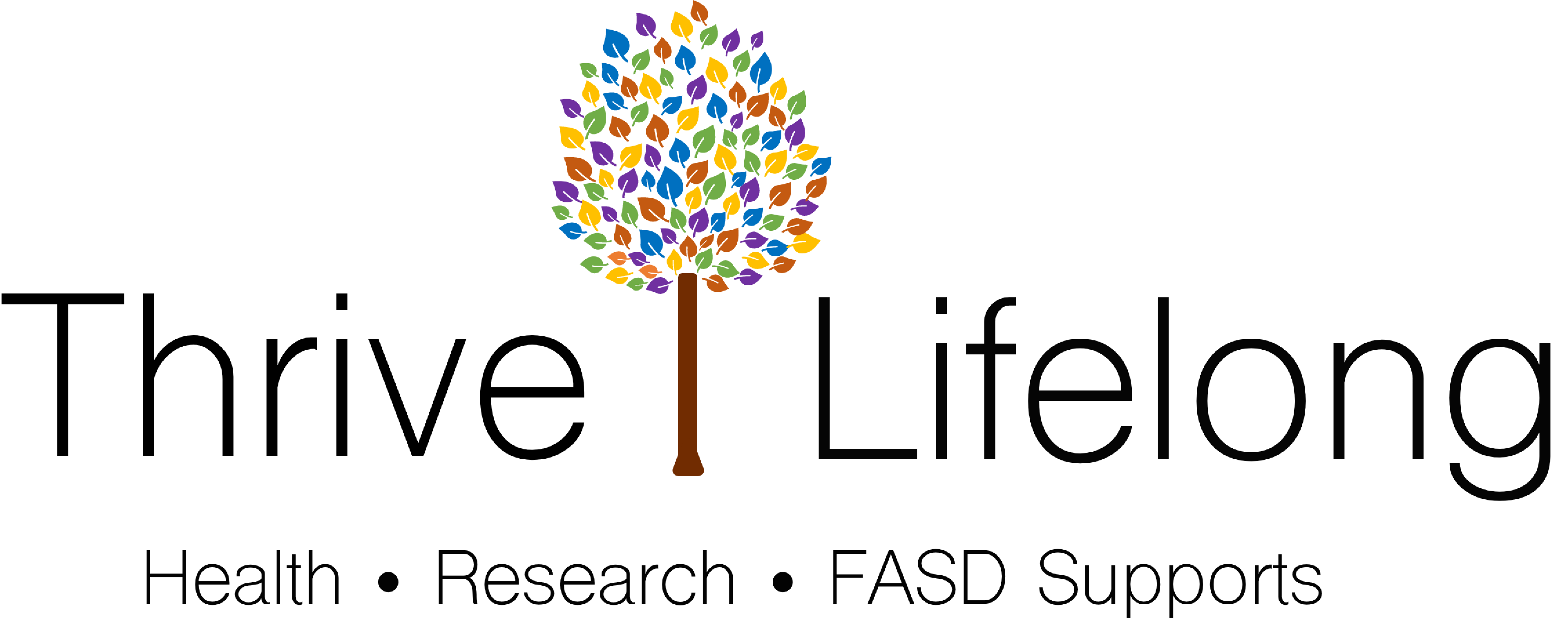Newsletter - September 2021

Tip of the Month
You can also try setting up a special “calming place” your child can go when they feel overwhelmed. Your child can even help you set it up! Inside, you can put a special blanket, stuffed animal, or pillow. You can have music or books in there. Talk with your child about how to ask for their calming place.
FMF Connect — An Introduction

Families Moving Forward (FMF) Connect is a new mobile health intervention developed especially for parents and caregivers raising children with fetal alcohol spectrum disorders (FASD) or prenatal alcohol exposure (PAE). This intervention is neatly packaged into an app for smartphones that parents and caregivers can access anytime, anywhere. As of right now, FMF Connect is still in its testing stage. Design on the app started in 2017, and testing with real parents and caregivers from across the United States have been ongoing since 2019.
This app has several goals. It helps parents better understand their children’s behavior and development. This includes the useful strategy of “reframing,” which is seeing things from a brain-based perspective. Parents learn creative ideas for accommodations to support their children’s needs and plan for their futures. FMF Connect also teaches a “brainstorming” process to help parents develop a positive behavior support plan for especially challenging behaviors. This can help children function better and families feel less stressed. FMF Connect recognizes how hard it is to parent a child with a hidden disability when there are few community supports. The app provides ideas to help with self-care and advocacy, and a community of other parents who understand.
FMF Connect has five main components that are designed to help parents feel more effective:
- Learning Modules- this is the largest portion of the app and where most of the content is contained. Parents go through 12 modules that start off simple and build on each other until the parent is creating a positive behavior support plan on their own!
- Family Forum- a peer-moderated chat room where parents and caregivers can share ideas, practice new skills, and gain support!
- Library- parents can extend their learning through extra content, factsheets, and resource lists. There are also over 100 videos in the Library!
- Notebook- a personalized section of the app where parents’ responses to exercises, notes, and helpful tools are stored for easy access.
- Dashboard- the “front page” of the app where parents can check their progress, edit their personal avatar, track behavior, and read the Tip of the Day.
This app hopes to overcome some of the barriers that many people face when trying to access care such as cost and access to specialized providers.
So how can you get this app?
We are getting ready for our Randomized Control Trial and hope to start enrollment for this trial in mid-late September of this year! This trial will only be for iOS devices (iPhones and iPads) for now, but we are working towards making an Android version of the app in late 2022.
Look out for future issues of this newsletter with more information and a link for you to enroll! This link will also be posted on our website.
The Families Moving Forward Program

The original, “standard” Families Moving Forward (FMF) Program is a “behavioral consultation” treatment. The FMF Program was specially designed to meet the needs of families raising children with FASD, or prenatal alcohol exposure (PAE), who have challenging learning and behavior problems. This program was first funded by the CDC in 2001. The program was then tested, streamlined, and found effective in research. Starting in 2010, clinician training in the FMF Program became available so families could receive assistance from mental health providers who understand FASD and know what to do.
The FMF Program is meant to be a collaboration between parent(s) and a trained, supportive provider, called an FMF Specialist. The FMF Specialist offers consultation to the parent, based on solid knowledge about FASD and child behavior management techniques that work. FMF Program services can be offered in person (in clinic or home visits), or by telehealth. Treatment goals are to help parents learn helpful attitudes and parenting practices… to understand their child better… and to meet important unmet family needs. Another goal is to help children with FASD or PAE function better. The FMF Program can be customized for each family. This is important because each family has their own needs… and children with FASD or PAE are very different from one another.
Clinicians becoming FMF Specialists use techniques taught in FMF Program training. These include motivational interviewing, positive behavior support techniques and a cognitive-behavioral approach to caregiver consultation. Parents experience helpful consultation that offers useful knowledge and practical ideas on how to handle the child’s unusual behavior. Parents work through manageable steps to solve child behavior problems. Parents also have a chance to spend time with a supportive provider who “gets” the problem. Importantly, parents have time and space to think about their worries… and the joys their child brings them…. and the future.
FMF Specialists also offer targeted consultation to other providers working with the child and family, and to school staff. They work with the child’s parents in doing this, since parents are really the most important advocates for children with FASD or PAE. FMF Specialists also work with parents to find needed community resources, and get families linked up with what they need. Sometimes that takes a lot of creativity!
In practical terms, the FMF Program lasts for about 6 to 9 months, and sometimes a little longer. Visits can occur weekly, or every other week. Services can be offered by telehealth. Depending on the family’s insurance, FMF Program services are often covered as mental health services. The biggest limitation right now is that there are not enough trained FMF Specialists. Clinicians are invited to look into training, which is offered for a fee similar to other evidence-based practices. Families are invited to talk to their therapists and counselors about getting trained. Training can be done virtually. Training takes about 6 days plus follow-up supportive clinical consultation to really learn the practice.
The FMF Program was developed by Heather Carmichael Olson, Ph.D. and her colleagues at the Seattle Children’s Research Institute and University of Washington.
We invite everyone to visit the NEW FMF Program website at: www.familiesmovingforwardprogram.com
Research Corner

Researchers in the Petrenko lab at Mt. Hope Family Center and in the Collaborative Initiative on FASD (CIFASD) were interested in whether the partner can have an effect on a woman’s drinking and feeling depressed during pregnancy. They followed 246 women in Western Ukraine throughout their pregnancies, and found that the women’s partners did affect their drinking and depression during pregnancy.
In the first trimester, researchers asked the pregnant women how satisfied they were in their relationship and whether their partner drank alcohol and smoked tobacco. Then, in the third trimester, they asked the pregnant women if they were drinking alcohol and how depressed they felt. They discovered that women who were less satisfied with their relationship and whose partners drank alcohol and smoked tobacco were more likely to drink alcohol and feel depressed in their third trimester. This was true no matter the women’s socioeconomic status (which means their job, income, and social standing).
The researchers also tested the development of the women’s babies when they were 6 months old. They found that drinking alcohol during pregnancy was related to delayed development at 6 months.
This is important because the more we know about why women drink and feel depressed during pregnancy, the easier it will be to find helpful ways to support them. It’s also important because it shows how big a role the woman’s partner plays in her pregnancy – both for her own well-being and for the development of the baby. This means that support during pregnancy should include the partner, and support their relationship too.
To learn more:
University of Rochester Newscenter
Original Article from Wiley Online Library
Run FASD 2021: a Virtual 5K Benefiting NOFAS

As August comes to a close and we start swapping bathing suits and pool noodles for bookbags and pencils, many are prepping for the first “Run FASD Virtual 5K”. September is FASD Awareness month, and this event hopes to “support self-advocates and families and to raise awareness about FASD in our own communities.”
The founder of this event, Rebecca Tilou, is “a mother, runner, and powerful self-advocate.” Diagnosed as an adult, Rebecca reminds us all that it’s never too late to get screened, get a FASD diagnosis, and get support. She also is a great role model in how we can use our voice to educate and empower others!
This event is open for anyone, anywhere, as you can complete it in the comfort of your own community! Consider participating and run, walk, or roll at your own pace wherever you are! There is no start line, no finish line, and no time pressure. You can do the whole thing in one go or break it up however you want during the week of September 9th-15th. If you decide to participate, you will get a t-shirt, a downloadable race bib, and finishers metal!
Check out https://nofaspolicycenter.org/run-fasd/ for more information and how to register.
The FASD Respect Act

We need your help advocating for the FASD Respect Act!
So, what is the FASD Respect Act?
The FASD Respect Act is legislation addressing FASD on a national level, which is being proposed during the 2021 117th Congressional Session (S. 2238 and H.R. 4151). This bipartisan legislation authorizes $118 million for FASD research, prevention, and services. It aims to provide support for individuals with FASD and their families through early intervention and other services across state, tribal and federal governments and non-governmental stakeholders.
Why is this important?
FASD is a major public health problem that affects 1 in 20 school-aged children in the United States. It influences children’s development and can contribute to high caregiver stress when adequate supports are not available. However, it often goes undiagnosed because of limited knowledge and resources. Many families don’t have access to services and support in their local communities and states. There is also a lack of training for care providers. Therefore, there is an alarming gap between the individual and families’ needs and the resources available across the country.
Over the last 25 years there has been a significant decrease in the federal funding for FASD prevention and intervention. In the Fetal Alcohol Syndrome Prevention Act of 1998, the funding was $27 million. In comparison, in FY2021, it decreased to just over $12 million.
What exactly does the FASD Respect Act include?
The FASD Respect Act recognizes the huge gap and the urgent need to have a comprehensive approach to provide resources and service to individuals and families affected by FASD across the country. According to the website of the National Organization on Fetal Alcohol Syndrome Policy & Training Center, the bill would: “
- Reauthorize and strengthen existing federal FASD programs, including the Interagency Coordinating Committee on FASD;
- Replace the defunct National FAS Taskforce with a National Advisory Council on FASD;
- Establish new FASD programs on Building State and Tribal FASD Systems, Community Partnerships, Best Practices and Models of Care, Transitional Services and Demonstration FASD-informed Services for Individuals with FASD;
- Provide funding to the Departments of Education and Justice for FASD education awareness and training;
- Establish a FASD Center of Excellence as the go-to entity for State, Tribal and local governments and non-governmental stakeholders seeking to develop new or improve existing best practices for FASD prevention, screening and identification, diagnosis, and FASD-informed intervention programs and services.”
Everyone is encouraged to get involved to help get this legislation passed! To learn more about the legislation, please visit the following website: https://nofaspolicycenter.org/the-fasd-respect-act/.
Also, to learn more about information and updates in your state, please visit the following website: https://nofaspolicycenter.org/the-fasd-respect-act/strategic-advocacy/.
You can also follow NOFAS social media platforms on Twitter (@NOFAS_USA), Facebook (https://www.facebook.com/nofas/), or Instagram (@nofas_usa) to stay up to date on different events!
